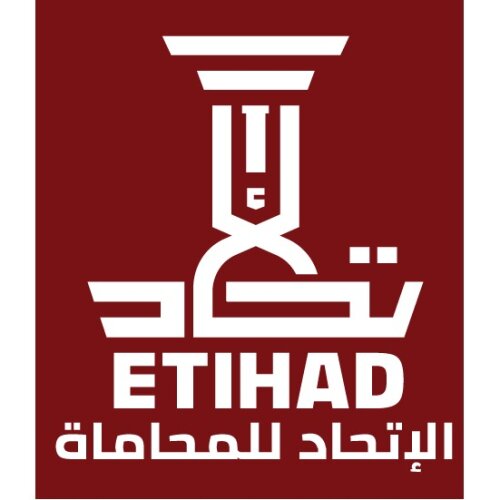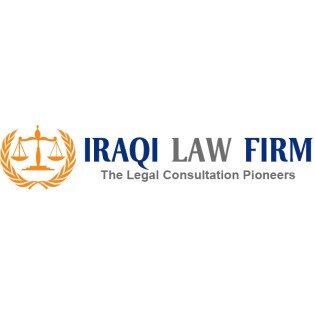Best Mining Law Lawyers in Iraq
Share your needs with us, get contacted by law firms.
Free. Takes 2 min.
Or refine your search by selecting a city:
List of the best lawyers in Iraq
About Mining Law in Iraq
Mining Law in Iraq refers to the body of legislation that governs the exploration, development, extraction, and management of mineral resources within the country’s territory. Iraq is known for its vast natural resources, including hydrocarbons like oil and gas, as well as minerals such as sulfur, phosphate, and gypsum. The mining sector is vital to Iraq’s economy, and its legal framework is designed to regulate mineral rights, licensing, safety, environmental protection, and the interests of both the state and private investors. Iraqi mining law is primarily managed through a collection of ordinances, regulations, and decrees, many of which have been updated in recent years to attract foreign investment and modernize the sector.
Why You May Need a Lawyer
Legal issues concerning mining in Iraq are often complex, due to a combination of technical regulations, overlapping governmental oversight, and sometimes ambiguous statutes. You may need a mining law specialist in the following circumstances:
- Applying for or disputing mining licenses and permits.
- Negotiating joint ventures or partnerships in mineral extraction projects.
- Understanding royalty payments and taxation associated with mineral production.
- Handling disputes between landowners, companies, and governmental bodies.
- Addressing environmental compliance and liability issues.
- Navigating foreign investment restrictions and incentives.
- Ensuring compliance with labor and safety regulations in the mining sector.
Local Laws Overview
Mining activities in Iraq are governed by a unique mix of legislative instruments. The main pieces of legislation are the Mining and Quarrying Law (No. 91 of 1988) and its subsequent amendments, along with regulations issued by the Ministry of Industry and Minerals. Key aspects include:
- Exploration and Mining Rights: All mineral rights belong to the state. Private and foreign entities must obtain licenses or contracts from the relevant authorities.
- Licensing Process: Licenses for exploration, exploitation, and quarrying of minerals are issued by the Ministry of Industry and Minerals, subject to certain technical and financial requirements.
- Foreign Investment: Iraq has introduced incentives and mechanisms to encourage foreign involvement, but certain strategic minerals and locations may have additional restrictions.
- Environmental Protection: Mining operations must comply with environmental protection standards, including waste management, rehabilitation, and the mitigation of harmful impacts.
- Health and Safety: Mining workplaces are subject to national labor, health, and safety regulations. Compliance is closely monitored by governmental inspectors.
- Dispute Resolution: Legal disputes are handled through administrative bodies or courts, depending on the nature of the conflict, with some provision for arbitration in contracts involving foreign parties.
Frequently Asked Questions
What minerals are most commonly extracted in Iraq?
Iraq has major deposits of oil, natural gas, sulfur, phosphate, gypsum, salt, and other industrial minerals. Oil and gas dominate, but interest in non-hydrocarbon mining is increasing.
Do foreign companies need an Iraqi partner to invest in mining?
While foreign investment is encouraged, certain mineral projects or exploration rights may require partnerships with an Iraqi entity. Requirements vary by project and mineral type.
Who issues mining licenses in Iraq?
The Ministry of Industry and Minerals is the primary authority that manages the issuance of mining and quarrying licenses.
How long is a typical mining license valid in Iraq?
The duration of mining licenses varies depending on the type- exploration, exploitation, or quarrying. Licenses are usually issued for several years and can be renewed upon satisfactory compliance.
Are there environmental regulations specific to mining?
Yes, mining operations must comply with both general and sector-specific environmental regulations, including waste management, water use, air quality, and land rehabilitation.
How are royalties and taxes on minerals determined?
Royalties are typically set by governmental decree and may vary based on mineral type and volume produced. Corporate and income taxes apply as per general Iraqi tax law.
What happens if a mining company does not comply with regulations?
Failure to comply with mining, safety, or environmental regulations can result in penalties, license suspension or revocation, and potential criminal liability for severe violations.
Can landowners mine resources discovered on their land?
All mineral rights belong to the state, regardless of land ownership. Landowners cannot exploit minerals without proper authorization from authorities.
How are disputes resolved in the mining sector?
Disputes can be settled through administrative review, local courts, or arbitration if provided for in the contract, especially in cases involving foreign investors.
Are there incentives for investing in the mining sector?
Iraqi law provides various incentives, such as customs and tax exemptions, for investment in strategic sectors including mining. The specifics depend on project type and location.
Additional Resources
Several governmental bodies and organizations provide support and guidance for those involved in the mining sector in Iraq. Key resources include:
- Ministry of Industry and Minerals - The principal authority handling all matters related to mining and mineral development.
- Iraqi Geological Survey - Offers geological data, research, and mapping services relevant to mining activities.
- National Investment Commission - Provides information and support for foreign investors in mining and other sectors.
- Chamber of Commerce and Industry - Can assist with business registration and legal matters related to the mining industry.
- Local Bar Associations - Useful for finding qualified mining law specialists in different regions of Iraq.
Next Steps
If you need legal advice or assistance regarding Mining Law in Iraq, start by clearly defining your legal objectives - whether it is obtaining a mining license, negotiating a contract, handling a dispute, or understanding your environmental obligations. Gather all relevant documents and information about your intended activities.
Next, consult with a qualified lawyer who specializes in mining law or natural resources. They can help you interpret the law, represent you before authorities, and ensure compliance with all legal requirements. You may contact the Ministry of Industry and Minerals or relevant professional associations for referrals to reputable specialists. Consider setting up an initial legal consultation to discuss your needs and determine the best course of action.
Remember, the mining sector in Iraq is highly regulated and subject to frequent legal changes. Having up-to-date professional guidance is the best way to protect your investment and operate successfully within the law.
Lawzana helps you find the best lawyers and law firms in Iraq through a curated and pre-screened list of qualified legal professionals. Our platform offers rankings and detailed profiles of attorneys and law firms, allowing you to compare based on practice areas, including Mining Law, experience, and client feedback.
Each profile includes a description of the firm's areas of practice, client reviews, team members and partners, year of establishment, spoken languages, office locations, contact information, social media presence, and any published articles or resources. Most firms on our platform speak English and are experienced in both local and international legal matters.
Get a quote from top-rated law firms in Iraq — quickly, securely, and without unnecessary hassle.
Disclaimer:
The information provided on this page is for general informational purposes only and does not constitute legal advice. While we strive to ensure the accuracy and relevance of the content, legal information may change over time, and interpretations of the law can vary. You should always consult with a qualified legal professional for advice specific to your situation.
We disclaim all liability for actions taken or not taken based on the content of this page. If you believe any information is incorrect or outdated, please contact us, and we will review and update it where appropriate.
Browse mining law law firms by city in Iraq
Refine your search by selecting a city.

















